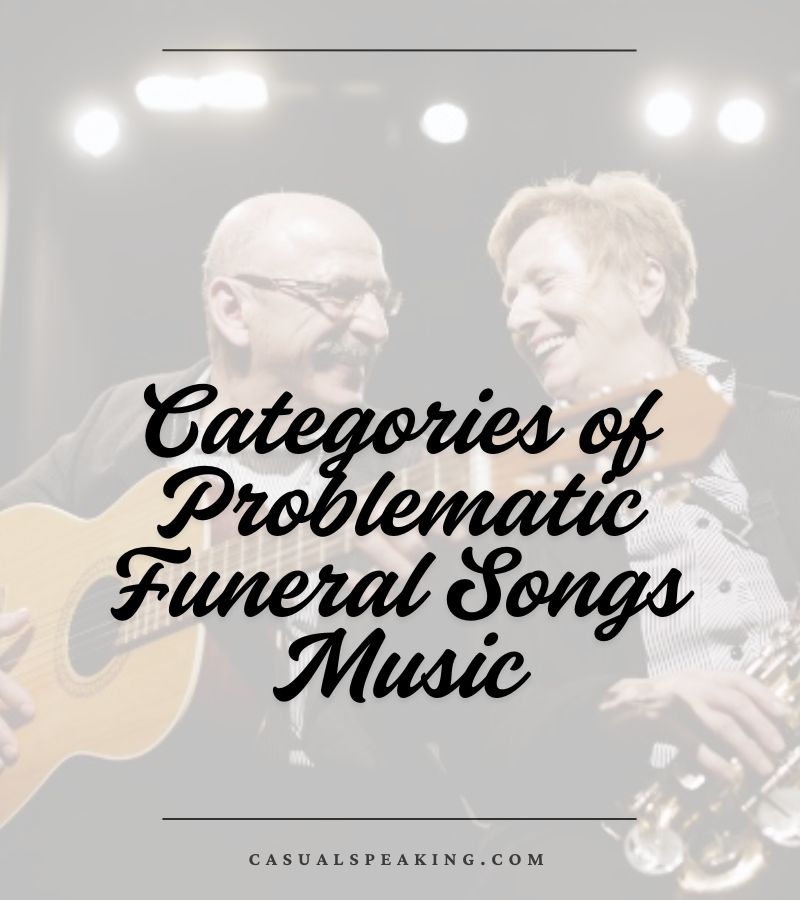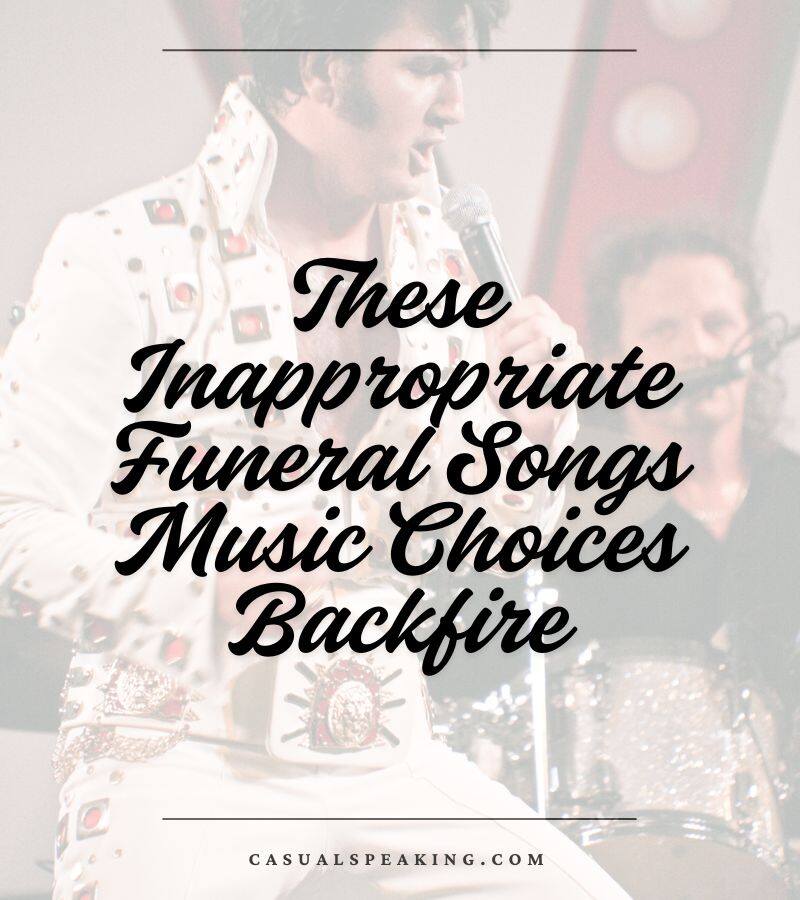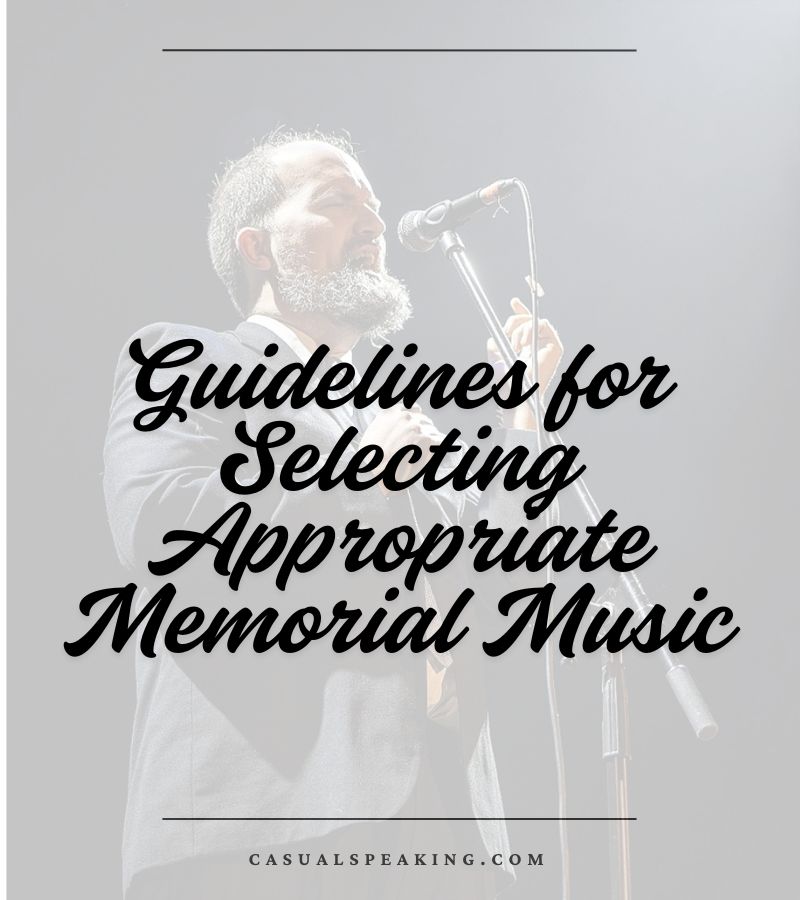Selecting music for funeral services requires careful consideration, yet many families unknowingly choose songs that disrupt the solemn atmosphere. Inappropriate funeral songs music can transform sacred moments into uncomfortable experiences for mourners. Understanding which popular tracks seem fitting but actually miss the mark helps families make respectful choices during difficult times.
Understanding Funeral Music Etiquette and Traditions
Cultural expectations for memorial services vary significantly across different communities and religious backgrounds. Traditional hymns like “Amazing Grace” or “How Great Thou Art” have provided comfort for generations, establishing a foundation of reverence that mourners expect. However, contemporary funeral practices increasingly incorporate personal musical preferences, creating opportunities for well-intentioned but inappropriate funeral music selections.
The psychology behind funeral song selection reveals how grief affects decision-making processes. Families often choose songs based on emotional connections with the deceased, overlooking how lyrics or musical tone might impact other attendees. Professional funeral directors report that poor musical choices can disrupt the healing atmosphere, making it harder for mourners to process their grief appropriately.
Categories of Problematic Funeral Songs Music

Upbeat Party Anthems That Feel Wrong
Dance floor favorites lack the solemnity required for memorial services, regardless of their popularity or emotional significance to families. Songs celebrating wild lifestyles or promoting excessive celebration create jarring contrasts with the mourning process. These inappropriate funeral songs often feature heavy beats, party-focused lyrics, or themes that contradict the respectful atmosphere families want to create.
Breakup Songs Masquerading as Tributes
Many love ballads contain hidden meanings about relationship endings that make them unsuitable for farewells to deceased loved ones. Relationship-ending anthems might sound beautiful and emotional, but their underlying messages about separation, betrayal, or moving on can send unintended signals during memorial services. Families sometimes choose these songs focusing on melody rather than analyzing complete lyrical content.
The Complete List: 26 Inappropriate Funeral Songs Music Selections
Rock and Pop Disasters
| Song Title | Artist | Why It’s Tempting | Why It’s Inappropriate |
| “Another One Bites the Dust” | Queen | Iconic beat, memorable | Celebrates death casually |
| “Highway to Hell” | AC/DC | Rock classic status | Negative afterlife implications |
| “Stayin’ Alive” | Bee Gees | Upbeat, energetic | Contradicts funeral purpose |
“Another One Bites the Dust” by Queen tops many lists of inappropriate funeral songs music due to its obvious death references combined with an upbeat tempo. While Queen’s musical genius created an undeniably catchy tune, the lyrics literally celebrate someone’s demise, making mourners uncomfortable during what should be a respectful remembrance.
“I Will Survive” by Gloria Gaynor appeals to families wanting to emphasize resilience and strength. However, this empowering anthem focuses on personal triumph over adversity rather than honoring the deceased’s memory. The song’s defiant tone and celebratory nature clash with the reflective atmosphere appropriate for memorial services.
Country and Folk Missteps
“Friends in Low Places” by Garth Brooks seems fitting because it discusses companionship and finding comfort during difficult times. Unfortunately, the song’s heavy references to bar culture, drinking, and drowning sorrows make it unsuitable for sacred memorial spaces. Many inappropriate funeral music choices stem from focusing on one positive theme while ignoring problematic elements.
“Ring of Fire” by Johnny Cash presents challenges despite Cash’s respected status in American music. The fire imagery throughout the song creates uncomfortable associations in funeral contexts, particularly for families concerned about afterlife concepts or those who’ve experienced trauma related to fires or accidents.
Hip-Hop and R&B Blunders
Modern hip-hop and R&B tracks often contain explicit language, materialistic themes, or relationship drama that make them unsuitable for memorial services. “Gold Digger” by Kanye West might be catchy and well-known, but its materialistic focus and derogatory language toward women create inappropriate atmospheres during times when families seek comfort and reflection.
“Hotline Bling” by Drake represents how contemporary music’s popularity doesn’t translate to funeral appropriateness. The song’s focus on relationship drama, jealousy, and communication breakdowns sends wrong messages when families want to celebrate positive memories and lasting bonds with deceased loved ones.
Alternative and Indie Mistakes
“Pumped Up Kicks” by Foster the People demonstrates how catchy melodies can mask disturbing lyrical content. This indie hit contains references to violence and school shootings that make it completely inappropriate for memorial services, regardless of its musical popularity among younger generations.
“Semi-Charmed Life” by Third Eye Blind sounds upbeat and optimistic on the surface, but careful listening reveals extensive drug use references throughout the lyrics. These inappropriate funeral songs highlight the importance of analyzing complete song content rather than making selections based solely on musical style or general mood.
Why These Inappropriate Funeral Songs Music Choices Backfire

Emotional disruption occurs when funeral music creates confusion, discomfort, or unintended reactions among mourners. Family members report feeling shocked, embarrassed, or even angry when inappropriate songs play during memorial services. These negative reactions can overshadow positive memories and make the grieving process more difficult for everyone involved.
Religious and cultural sensitivities become major concerns when families choose songs without considering diverse attendee backgrounds. A song that seems meaningful to immediate family members might offend extended relatives, friends, or community members who hold different values or beliefs. Funeral directors emphasize the importance of selecting music that respects all attendees rather than focusing solely on personal preferences.
The long-term impact of poor musical choices extends beyond the memorial service itself. Family members often remember inappropriate songs more vividly than other service elements, potentially tainting their memories of honoring their loved one. These lasting impressions can affect how people process grief and remember the deceased in years to come.
Better Alternatives: Appropriate Funeral Music Suggestions
Classic Hymns and Spiritual Songs
Traditional religious selections provide comfort through familiar melodies and uplifting messages about hope, peace, and eternal rest. “Amazing Grace,” “How Great Thou Art,” and “Be Still My Soul” have comforted mourners across generations and cultural backgrounds. These timeless pieces maintain reverent atmospheres while offering spiritual consolation to grieving families.
Cross-cultural spiritual music allows families to honor diverse backgrounds while maintaining appropriate tones. Songs like “Ave Maria,” “Precious Lord,” or contemporary Christian music provide options that respect religious traditions without limiting musical styles to ancient hymns exclusively.
Contemporary Appropriate Choices
| Song Title | Artist | Why It Works |
| “Tears in Heaven” | Eric Clapton | Addresses loss with hope |
| “Wind Beneath My Wings” | Bette Midler | Celebrates support and love |
| “You Raise Me Up” | Josh Groban | Inspirational without being inappropriate |
“Tears in Heaven” by Eric Clapton demonstrates how contemporary music can address loss appropriately. Clapton wrote this song after his young son’s tragic death, creating a deeply personal yet universally relatable piece about grief, hope, and the possibility of reunion. The song’s gentle melody and thoughtful lyrics make it suitable for memorial services across different cultural contexts.
Instrumental and Classical Options
Orchestra pieces offer sophisticated alternatives that avoid lyrical complications entirely. Classical compositions by composers like Bach, Mozart, or Pachelbel provide beautiful backgrounds for reflection without introducing potentially problematic language or themes. These selections work particularly well for diverse gatherings where lyrical content might create cultural or religious conflicts.
Guidelines for Selecting Appropriate Memorial Music

Essential questions families should ask before finalizing musical selections include: Does this song honor the deceased respectfully? Will the lyrics comfort rather than disturb mourners? Is the overall tone appropriate for a sacred or solemn occasion? These considerations help prevent well-intentioned but inappropriate funeral songs music from disrupting memorial services.
Collaborative selection processes work best when families involve multiple perspectives in musical decisions. Different generations might have varying preferences, but finding common ground ensures that chosen songs resonate positively with all attendees. Funeral professionals often facilitate these discussions, helping families balance personal preferences with appropriate alternatives.
Professional guidance from funeral directors, religious leaders, or music therapists can prevent costly musical mistakes. These experts understand how different songs affect mourning processes and can suggest meaningful alternatives that maintain personal significance while respecting cultural expectations and attendee sensitivities.
Conclusion
Thoughtful musical selection transforms memorial services into meaningful experiences that comfort mourners while honoring deceased loved ones appropriately. Avoiding inappropriate funeral songs music requires careful consideration of lyrical content, musical tone, and attendee expectations rather than simply choosing popular or personally significant tracks.
The difference between appropriate and inappropriate funeral music often lies in subtle details that families might overlook during emotional decision-making periods. Taking time to analyze complete songs, seeking professional advice, and considering diverse attendee perspectives helps ensure that musical choices enhance rather than disrupt the healing process during difficult times.

Lyric lover, word weaver, and music soul behind Casualspeaking.Com. I decode emotions into verses, one line at a time. Join me where rhythm meets meaning, and lyrics speak louder.
